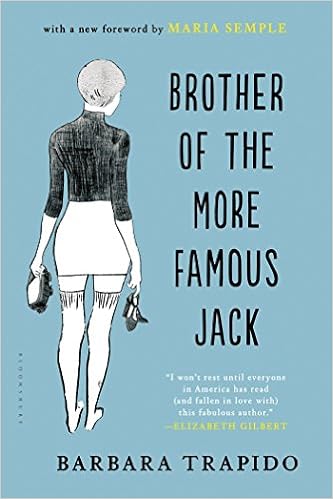 I wish I could claim that I "discovered" Barbara Trapido on my own. But, it seems the Lauren Groff and Maria Semple and Elizabeth Gilbert have beat me to it. After reading three of her novels, I join the fan club -- Barbara Trapido is now firmly in my personal Canon.
I wish I could claim that I "discovered" Barbara Trapido on my own. But, it seems the Lauren Groff and Maria Semple and Elizabeth Gilbert have beat me to it. After reading three of her novels, I join the fan club -- Barbara Trapido is now firmly in my personal Canon.Why? Well, for one, wit and soul is hard to find, and Trapido offers it in spades. In these days of self-consciously dark novels, Trapido offers us the gift of a happy ending. And no, she doesn't skip over the sad, gut-wrenching mis-steps that lead to it.
No surprise that Trapido is called a latter-day Jane Austen. For once, that title is well-earned, Trapido gets to the core of Austen, which is her ability to define the changing, slippery shapes of happiness. The world's delicious, but it tastes different from what you expect.
Trapido's first novel, BROTHER OF THE MORE FAMOUS JACK, is a joy. The heroine, Katherine, meets an eccentric family in whom, she senses, intellectual kinship. Austen fans are not surprised that the family has two attractive sons, and it goes without saying that, like Austen's Emma, Katherine picks the wrong one. The romance is short, but painful -- and it leads to even more heartbreak. Trapido could easily dump Katherine in that bleak pit; but that's not what she's about. In her world, women climb out of pits, and make homes, families, even great art.
Another thing: in Trapido, first loves and first hurts don't vanish. First loves aren't about the man, Trapido knows, they are one version of our lives, our selves. First loves remind us of past selves, and they hang around-- in a good life, we weave them into a new, imperfect reality. Trapido has no illusions about the political or social imperfections. Happy endings are not smooth, or predictable, because people aren't-- and Trapido's eager to capture the surprises in store.
Even better, Trapido follows her characters in subsequent novels. I've already ordered them.
.
No comments:
Post a Comment